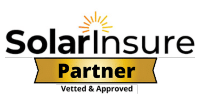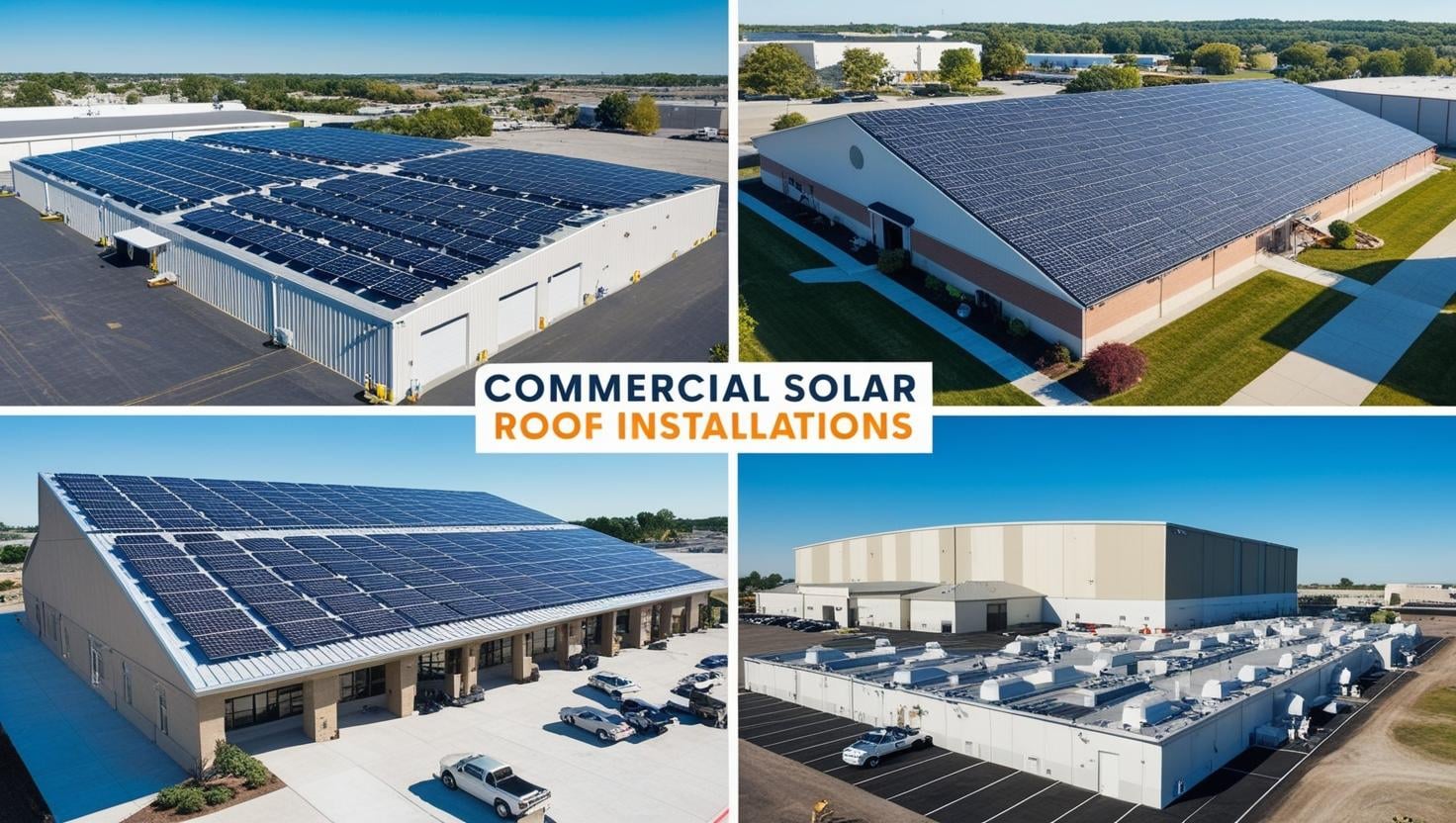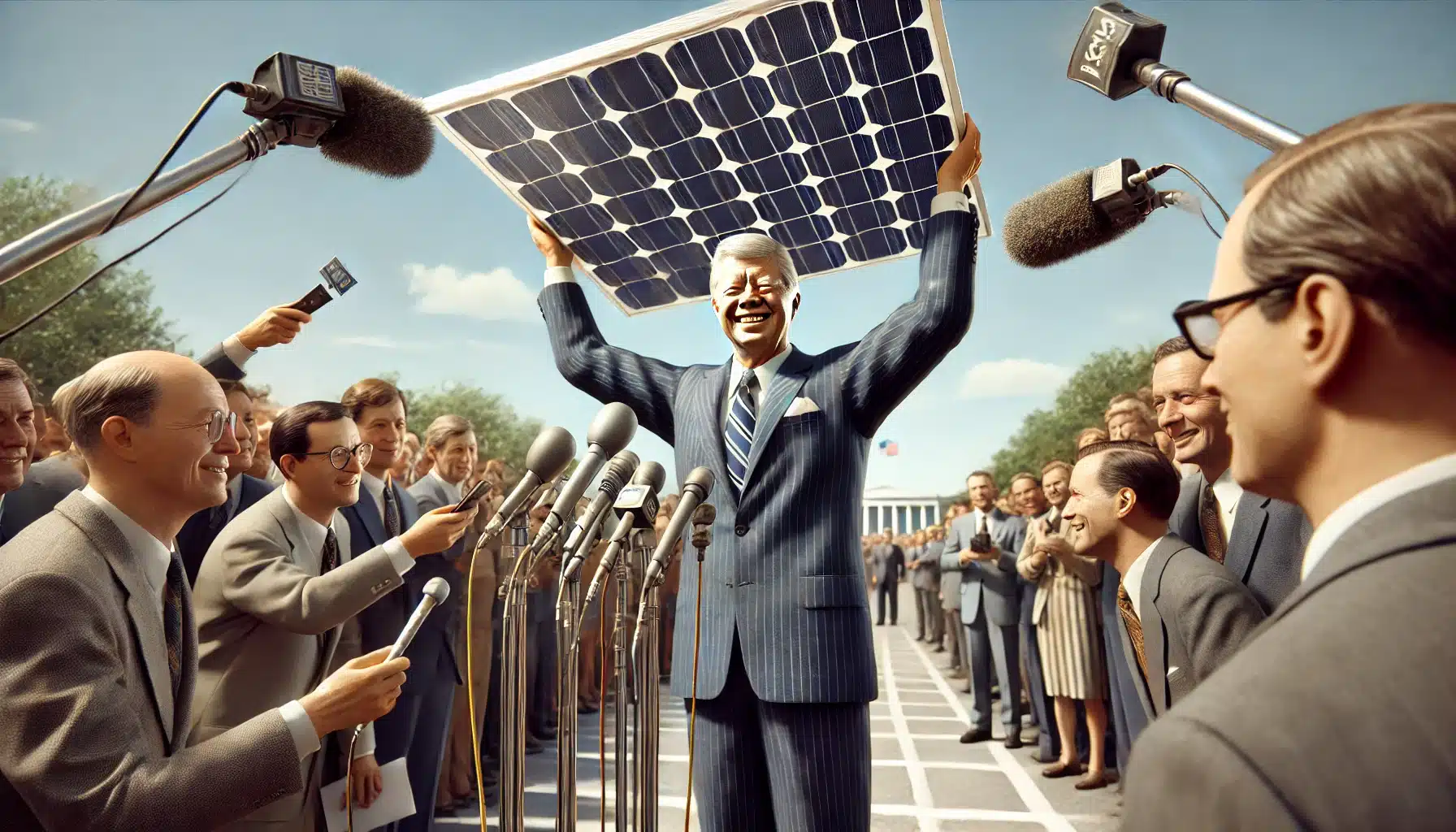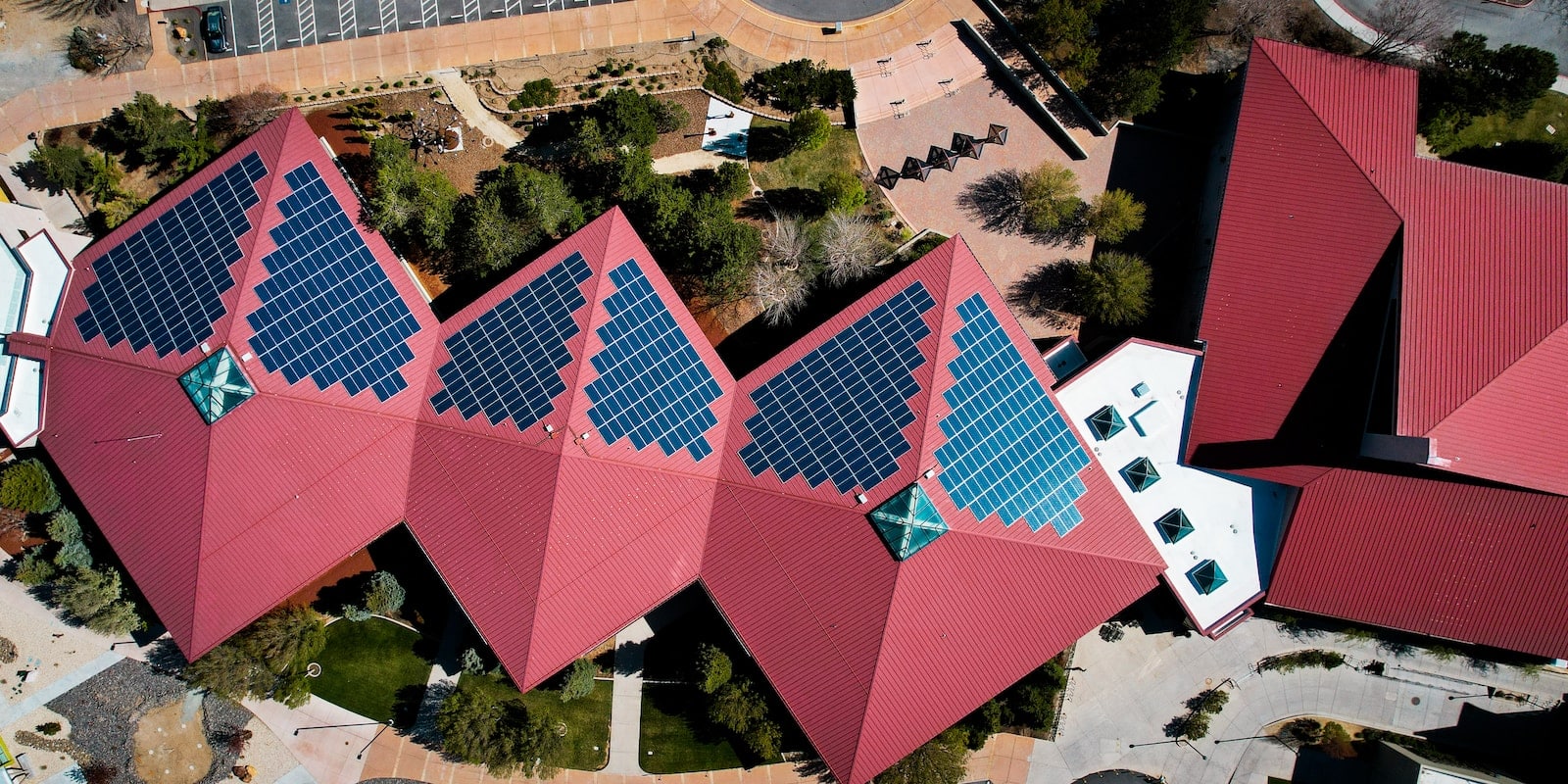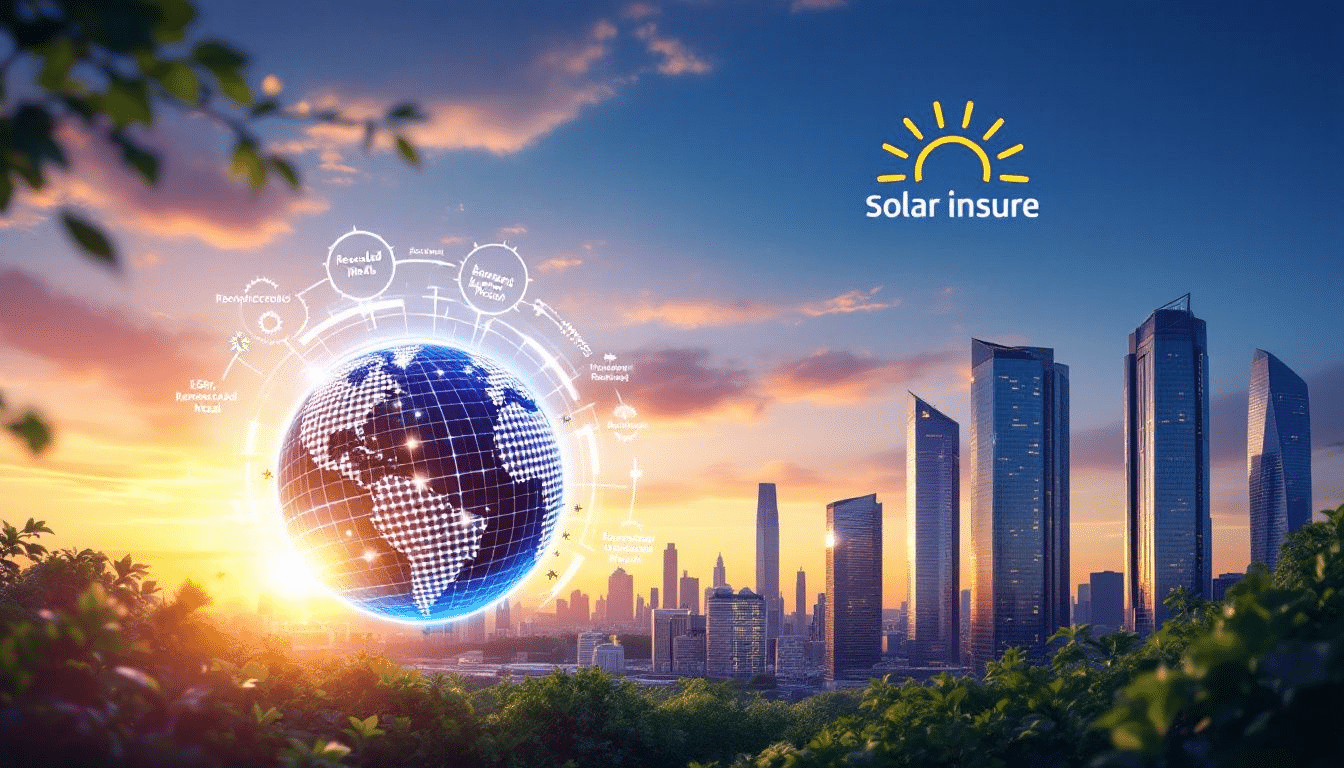Key Takeaways
- Different roof types—flat, pitched, and metal—have distinct advantages for solar panel installations, impacting energy efficiency and installation feasibility.
- Factors such as roof condition, structural requirements, and available space are critical to the success and safety of commercial solar installations.
- Financial incentives and financing options like direct purchase, leasing, and Power Purchase Agreements make solar installations more accessible and cost-effective for businesses.
Sun Source Energy is renowned for its expertise in installing commercial solar panels, providing businesses with a reliable and efficient transition to renewable energy.
This article delves into the different types of rooftops suitable for commercial solar systems, exploring their unique benefits and considerations.
By understanding these options, businesses can make informed decisions to optimize their solar installations and maximize energy production.
Types of Roofs Suitable for Commercial Solar Panels
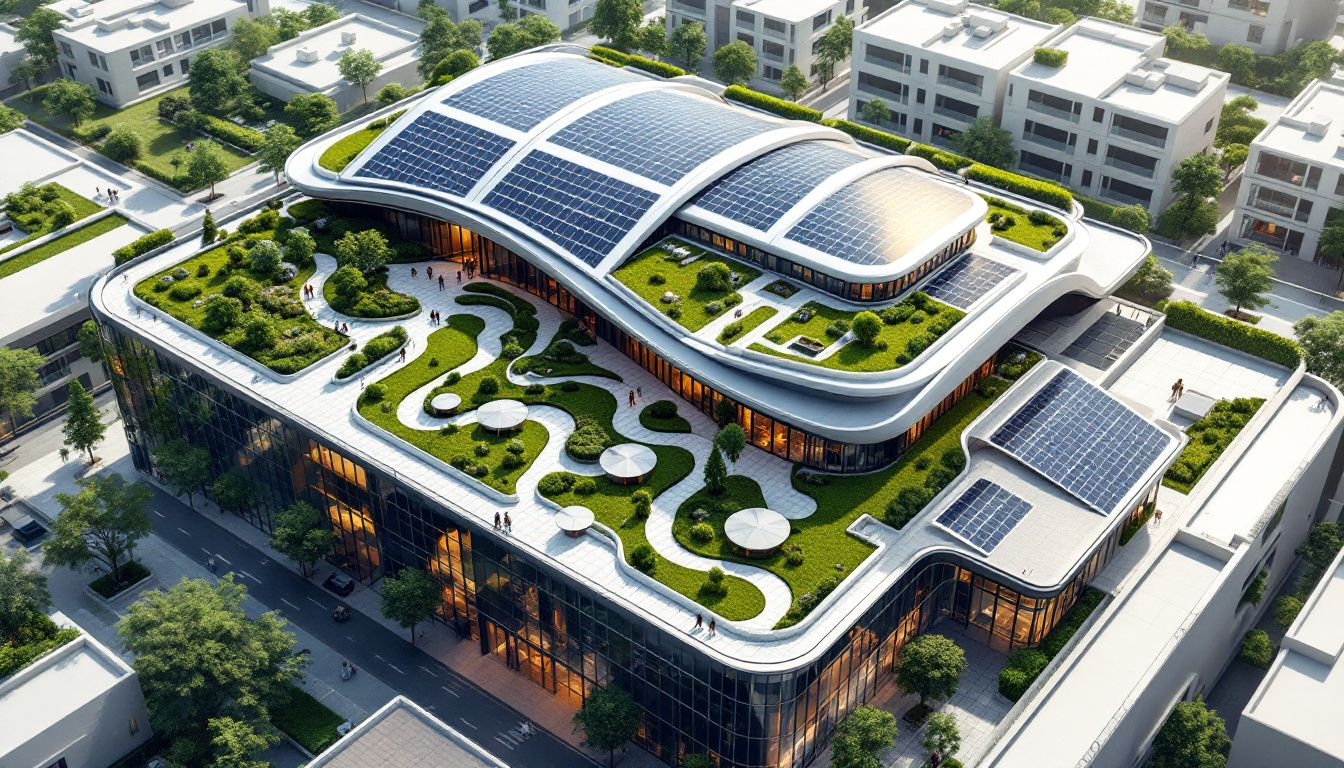
The type of roof on your commercial building plays a crucial role in the efficiency and feasibility of a solar installation. Various roof types, including flat roofs, pitched roofs, and metal roofs, each offer unique advantages for commercial solar systems.
Understanding the specific characteristics and suitability of each roof type helps in making an informed decision, maximizing energy production, and minimizing installation challenges.
Flat Roofs
Flat roofs are often considered the gold standard for commercial rooftop solar installations. Their expansive, unobstructed surface allows for optimal placement of solar panels, ensuring maximum energy capture.
Additionally, flat roofs facilitate easier and safer installations, often utilizing ballasted mounting systems that do not require drilling, thus preserving the roof structure. A commercial rooftop solar system can significantly enhance energy efficiency for businesses.
The ease of access for maintenance and upgrades further enhances their suitability, making them a preferred choice for office buildings and other commercial properties.
Pitched Roofs
Pitched roofs, while more challenging than flat roofs, can still be an excellent option for solar panel installations with the right approach. The tilt angle and orientation of the panels are crucial for maximizing energy production. Properly designed mounting systems can ensure that the panels are optimally angled to capture sunlight throughout the day.
This makes pitched roofs viable for commercial buildings that have a suitable roof pitch and orientation.
Metal Roofs
Metal roofs are increasingly popular for commercial solar installations due to their durability and structural integrity. These roofs can withstand various weather conditions, providing a stable and long-lasting foundation for solar panels.
The installation process is often streamlined, as metal roofs typically require fewer penetrations, reducing the risk of leaks and structural damage. This makes them an excellent choice for manufacturing facilities and office buildings alike.
Factors Influencing Roof Suitability for Solar Installations
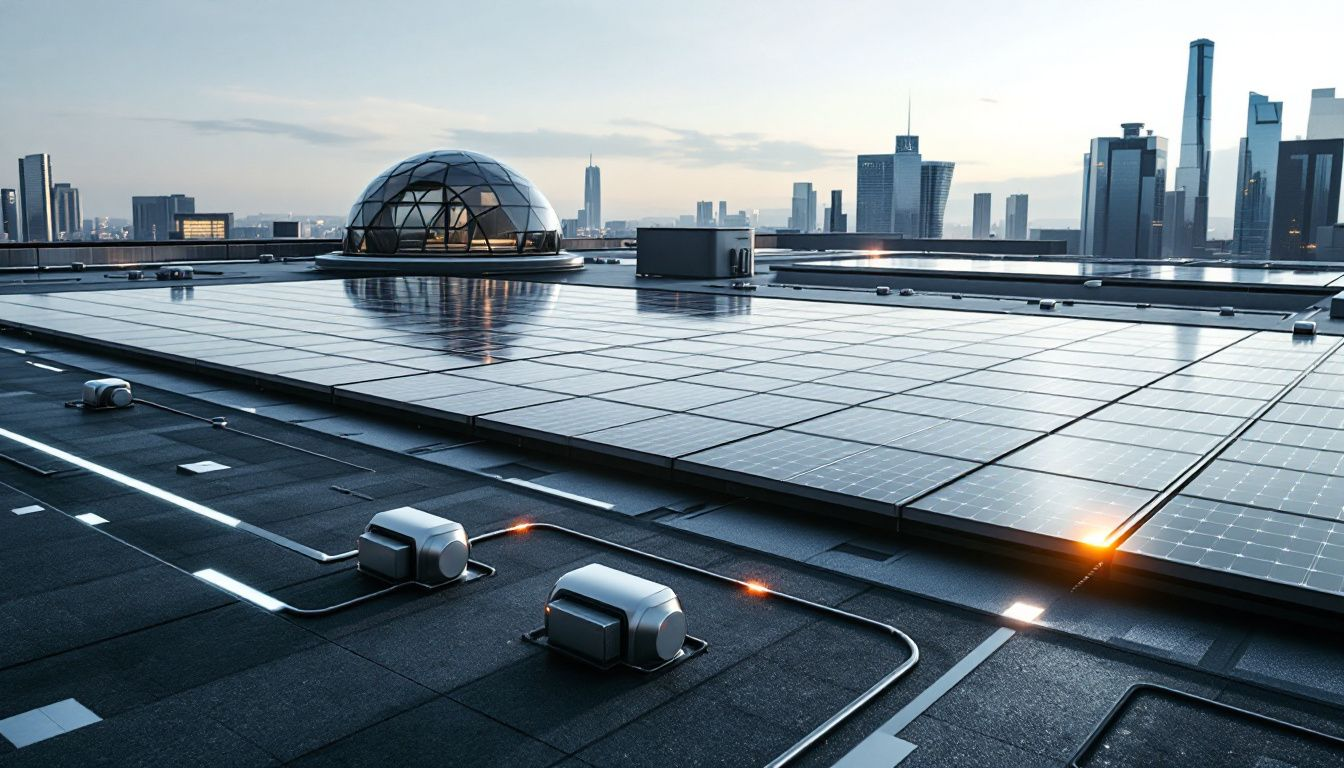
When planning a commercial rooftop solar installation, several factors influence the suitability of the roof. The condition and age of the roof, its structural requirements, and the available roof space are all critical considerations.
Each of these factors plays a vital role in ensuring that the solar panels can be installed safely and effectively, maximizing energy production and ensuring the longevity of the system.
Roof Condition and Age
The condition and age of the roof are paramount when considering a solar installation. A roof in poor condition with existing damage or leaks may require repairs or even replacement before installing solar panels. This ensures the roof can withstand the additional load and eliminates the risk of having to remove and reinstall the panels later due to roof repairs.
Given that a PV system is built to last at least 30 years, it is essential to ensure the roof is in good shape to match this lifespan.
Structural Requirements
The roof structure must support the additional weight of solar panels to ensure the installation’s safety and effectiveness. Solar panels can add approximately 6 pounds per square foot to the roof’s load, necessitating a thorough evaluation of the building’s structural components.
Licensed structural engineers can confirm the roof’s ability to handle these loads and design a mounting system that distributes the weight evenly.
Available Roof Space
The available roof space directly impacts the number of solar panels that can be installed and, consequently, the amount of energy that can be generated. Factors such as the roof’s surface area, orientation, and pitch all play a role in determining the optimal placement of solar panels.
Considering potential future modifications to the facility is important as they may affect energy generation and load requirements. A thorough assessment of the available roof space ensures that the solar installation is optimized for maximum energy production.
Benefits of Installing Solar Panels on Commercial Buildings
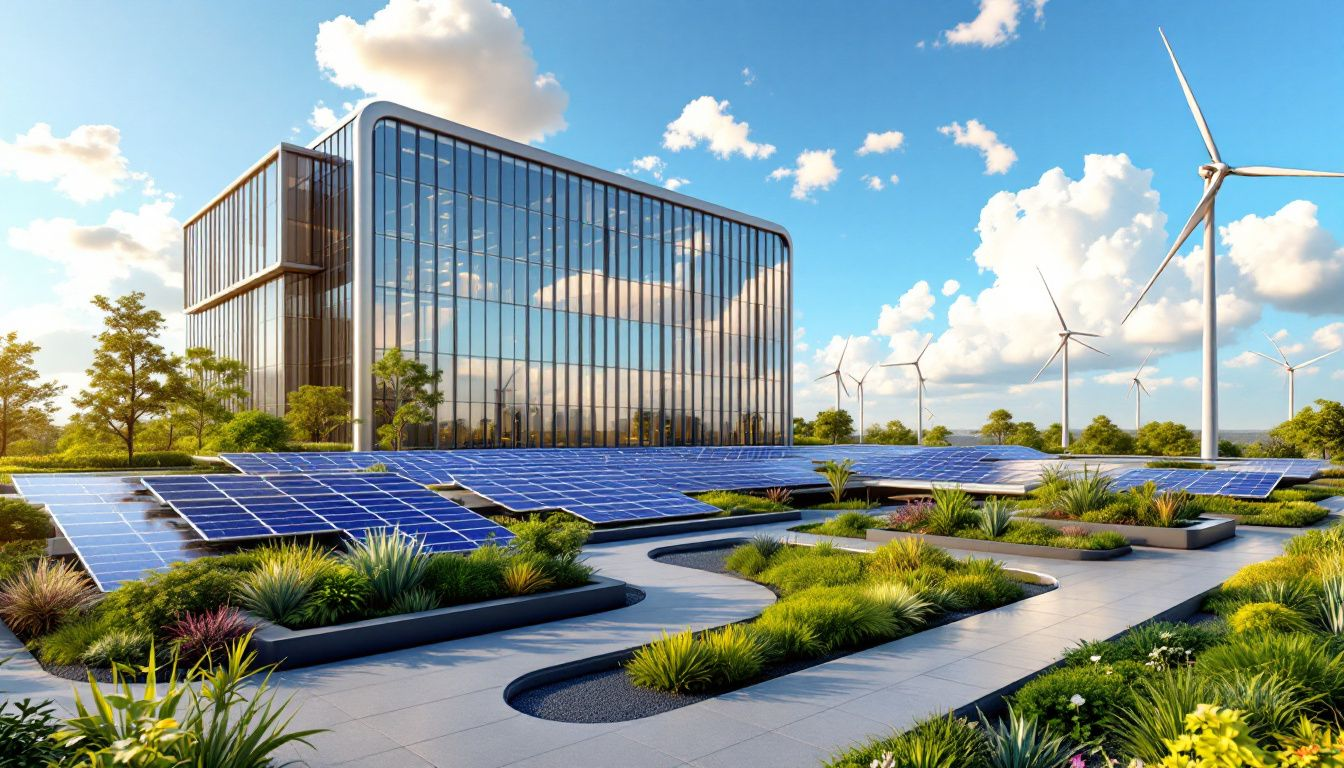
Installing solar panels on commercial buildings offers numerous benefits, including significant energy savings, a positive environmental impact, and attractive financial incentives. Harnessing solar power allows businesses to cut energy costs, contribute to sustainability efforts, and benefit from various incentive programs that make solar installations more affordable and financially rewarding.
Energy Savings
One of the most compelling reasons to install solar panels on commercial buildings is the potential for substantial energy savings. Solar panels generate electricity on-site, reducing reliance on the grid and lowering energy costs. Over time, these savings can be significant, with solar systems continuing to produce electricity efficiently for over 25 years after the initial payback period.
This long-term cost reduction can provide businesses with financial stability and predictability in their energy expenses.
Environmental Impact
Adopting solar energy has a profound impact on the environment. Solar power systems are a clean source of energy that significantly reduce greenhouse gas emissions, helping to combat climate change. Reducing carbon footprints allows businesses to contribute to a sustainable future while enhancing their corporate social responsibility (CSR) profile.
This commitment to sustainability can also positively influence stakeholder perceptions and support broader environmental goals.
Financial Incentives
Various financial incentives make solar installations an attractive investment for commercial property owners. Federal tax credits, such as the Investment Tax Credit (ITC), allow businesses to deduct a significant portion of the installation costs from their taxes.
Additionally, some states and utility companies offer rebates and other financial support to further reduce the overall cost of solar projects. These incentives, combined with the long-term energy savings, make solar installations a financially sound choice for businesses looking to invest in renewable energy.
Choosing the Right Mounting Systems for Your Roof

Selecting the appropriate mounting system is crucial for the success of a commercial solar installation. Different mounting systems, including ballasted, penetrative racking, and integrated mounting systems, offer distinct advantages depending on the roof type and structural requirements.
Understanding these options and choosing the right one ensures that the solar panels are securely installed, perform optimally, and maintain the integrity of the roof structure.
Ballasted Systems
Ballasted mounting systems are commonly used for flat roofs, where they secure solar panels using heavy concrete blocks without the need for drilling holes. This method is advantageous because it preserves the roof’s integrity and simplifies the installation process.
However, these systems are heavier due to the use of concrete weights, and proper assessment of wind and dead loads is essential to ensure stability and safety.
Penetrative Racking Systems
Penetrative racking systems are typically used on pitched roofs to securely attach solar panels. These systems involve drilling into the roof structure to anchor the panels, providing a stable and secure installation.
While this method ensures that the panels are firmly attached, it is essential to work with experienced professionals to prevent any potential leaks or structural damage during the installation process.
Integrated Mounting Systems
Integrated mounting systems connect directly with the roof material, offering a seamless and aesthetically pleasing installation for commercial solar systems. These systems are particularly effective on metal roofs, which provide excellent durability and often require fewer penetrations.
Integrated mounting options enhance both the functionality and appearance of the solar installation, contributing to improved performance and long-term reliability.
Ensuring Compliance with Building Codes and Regulations
Compliance with building codes and regulations is essential for the safety, performance, and legality of solar installations. Understanding and adhering to local building codes helps protect public health and safety by outlining minimum standards for structural and electrical safety.
The permitting process, fire safety considerations, and warranty and liability issues must all be carefully managed to ensure a successful and compliant solar installation.
Permitting Process
The permitting process for solar installations involves submitting detailed documentation, including designs and specifications, for review by local authorities. Understanding local regulations and requirements helps prevent delays or rejections during the permitting process.
Ensuring compliance with these regulations is a crucial step in obtaining the necessary permits and approvals for a solar installation.
Fire Safety Considerations
Fire safety is a critical consideration in the design and installation of solar panels. Regulations may require maintaining specific distances between the panels and access routes to ensure that emergency services can operate effectively in the event of a fire. Adhering to fire codes and planning for safe access routes helps to mitigate risks and protect both the building and its occupants.
Adhering to fire safety regulations significantly reduces the potential hazards associated with solar panel installations.
Warranty and Liability
Warranty and liability considerations are crucial for ensuring the long-term integrity of the roof and the solar installation. It is typically advised to replace the roof if it is in poor condition before installing the photovoltaic system to avoid compromising the roof’s warranty.
Reputable solar providers will confirm with the original roof manufacturer that the installation does not affect maintenance and warranty obligations. Additionally, they often offer a workmanship warranty to cover their installation services, providing peace of mind to the property owner.
Maintenance and Monitoring of Commercial Solar Systems
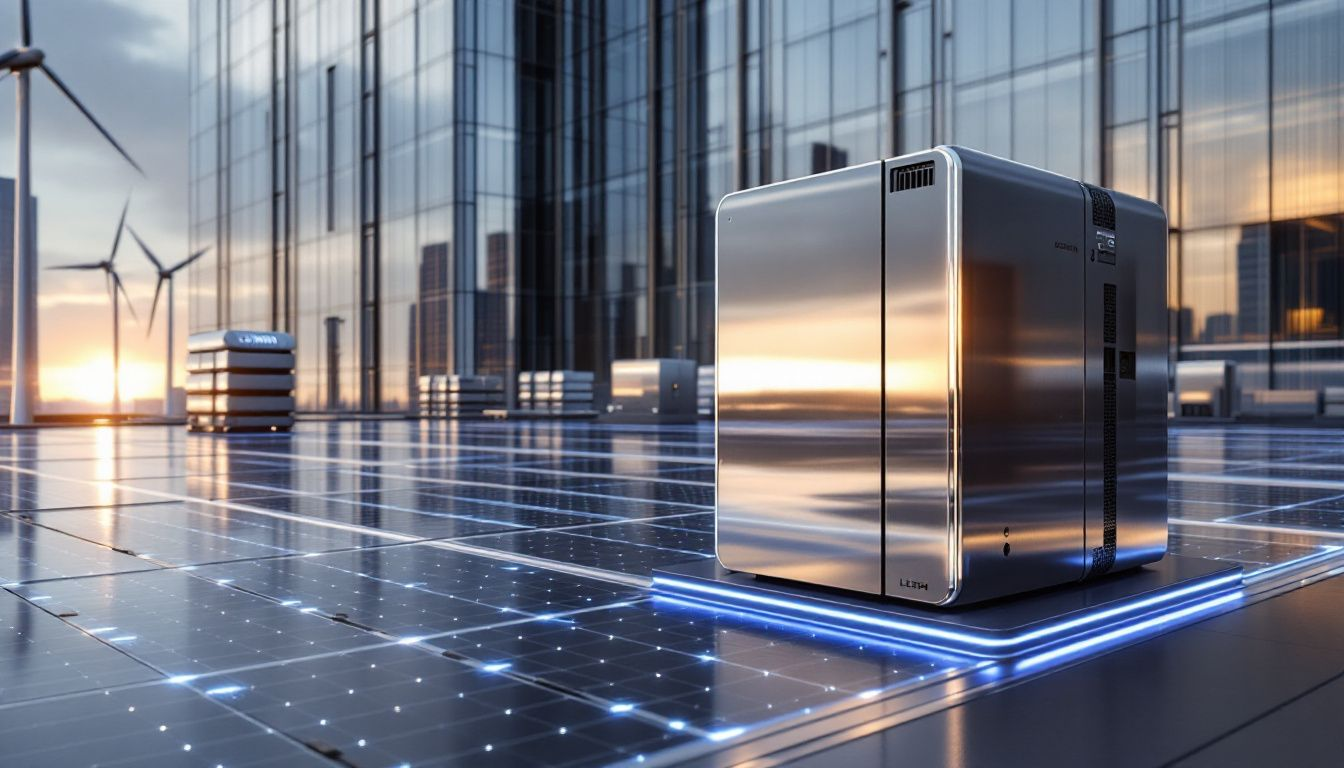
Ongoing maintenance and monitoring are essential to ensure the efficiency and longevity of commercial solar systems.
Regular inspections, performance monitoring, and professional maintenance services help to maintain optimal energy production and system reliability.
Addressing potential issues early and conducting thorough inspections help businesses maximize their return on investment and ensure the long-term success of their solar projects.
Regular Inspections
Regular inspections play a vital role in maintaining the efficiency and longevity of solar panels. Inspections help identify potential issues such as dirt accumulation, physical damage, or wear and tear on mounting systems.
Routine checks allow businesses to address minor problems before they escalate, ensuring the solar system operates at peak performance.
Performance Monitoring
Performance monitoring systems are crucial in tracking the energy output of solar panels and identifying maintenance needs. These energy storage systems provide real-time data on energy production, allowing for continuous assessment and optimization of energy usage.
Early detection and addressing of maintenance issues through performance monitoring prevent larger problems and ensure the solar installation’s long-term efficiency.
Professional Maintenance Services
Engaging qualified technicians for maintenance can significantly enhance the reliability of commercial solar systems. Professional maintenance services ensure thorough inspections and high-quality repairs, which can extend the operational life of the solar panels.
Certified professionals can efficiently identify and address any technical issues, providing businesses with peace of mind and ensuring that their solar systems continue to operate safely and effectively.
Financing Options for Commercial Solar Projects
Commercial property owners have several financing options to make solar installations more affordable and accessible. These include direct purchase, solar leasing, and power purchase agreements (PPAs). Each option offers different benefits and structures, allowing businesses to choose the financing method that best suits their financial situation and long-term goals.
By exploring these options, businesses can effectively manage the costs and maximize the financial benefits of their solar projects.
Direct Purchase
Direct purchase offers the most affordable route to solar ownership. It also yields the highest return on investment. By purchasing the solar system outright, businesses have complete ownership of the installation, allowing them to fully benefit from the energy savings and financial incentives.
This method eliminates monthly payments and provides long-term financial stability, making it an attractive option for businesses with the capital to invest upfront.
Solar Leasing
Solar leasing allows businesses to install solar panels with little to no upfront cost. Under a solar lease, a solar company installs, owns, and operates the solar system, and the business makes a fixed monthly payment for the use of the panels.
This arrangement provides an affordable way to access renewable energy and start saving on energy costs immediately, making it a cost-effective solution for many commercial property owners.
Power Purchase Agreements (PPAs)
Power Purchase Agreements (PPAs) enable businesses to purchase electricity generated by solar panels at predetermined rates, which are typically lower than grid prices. This arrangement provides immediate monthly savings on electricity bills and helps businesses hedge against inflation and rising utility rates.
By entering into a PPA, businesses can benefit from the financial advantages of solar energy without the need for a significant upfront investment.
Why Choose Sun Source Energy for Your Commercial Solar Installation?
Sun Source Energy stands out as a leading provider of commercial solar installations, offering extensive expertise, comprehensive services, and a track record of satisfied customers.
By partnering with Sun Source Energy, businesses can ensure a seamless transition to solar power, maximizing energy savings and enhancing the market value of their properties.
The company’s commitment to excellence and customer satisfaction makes them the ideal choice for any commercial solar project.
Expertise and Experience
Sun Source Energy brings extensive knowledge and experience in commercial solar installations, ensuring dependable results for their clients. Renowned for their commitment to excellence, Sun Source Energy guarantees high-quality service and reliable outcomes.
Their expertise in the solar energy sector ensures that every project is executed with precision and professionalism, providing businesses with the confidence that their solar installation is in capable hands.
Comprehensive Services
Sun Source Energy offers a wide range of comprehensive services for commercial solar projects, including development, Engineering, Procurement, and Construction (EPC), and ongoing maintenance for solar PV project. These end-to-end solutions ensure that clients receive a fully functioning solar generation system tailored to their specific needs.
The company also provides maintenance calls, system repairs, and health monitoring services to ensure the longevity and efficiency of the solar power systems. By offering such thorough services, Sun Source Energy ensures that their clients’ solar installations continue to operate safely and efficiently.
Customer Testimonials
Customer testimonials highlight the exceptional service and quick problem-solving provided by Sun Source Energy. Previous clients have praised the company for their thoroughness and ability to deliver successful solar projects. This positive feedback underscores Sun Source Energy’s dedication to customer satisfaction and their effectiveness in helping businesses achieve their renewable energy goals.
These testimonials serve as a testament to the company’s reliability and expertise in the commercial solar industry.
Summary
Choosing the right roof for your commercial solar installation is crucial for maximizing energy production and ensuring the longevity of the system. Understanding the types of roofs suitable for solar panels, the factors influencing roof suitability, and the benefits of solar installations can help businesses make informed decisions.
By selecting the appropriate mounting systems, ensuring compliance with building codes, and engaging in regular maintenance and monitoring, businesses can optimize their solar projects. With various financing options available, commercial property owners can find a solution that fits their financial situation.
Partnering with a reputable provider like Sun Source Energy ensures a seamless transition to renewable energy, maximizing energy savings and enhancing property value.
Frequently Asked Questions
What types of roofs are suitable for commercial solar panels?
Flat, pitched, and metal roofs are all suitable for commercial solar panels, each providing distinct benefits tailored to different building types. Choosing the right roof type can enhance the efficiency and effectiveness of your solar setup.
How does the condition and age of the roof affect solar panel installation?
A roof in good condition and relatively new is essential for supporting solar panels and ensuring their longevity. If your roof shows signs of aging or damage, it’s advisable to address those issues before installation.
What are the benefits of installing solar panels on commercial buildings?
Installing solar panels on commercial buildings offers substantial energy savings and lowers carbon emissions while taking advantage of financial incentives like tax credits. This not only enhances sustainability but also improves the bottom line.
What are the financing options available for commercial solar projects?
You can consider financing options such as direct purchase, solar leasing, and power purchase agreements (PPAs), as they each offer distinct advantages tailored to different financial strategies for commercial solar projects.
Why should I choose Sun Source Energy for my commercial solar installation?
Choosing Sun Source Energy for your commercial solar installation guarantees you extensive expertise and a proven track record of satisfied customers, ensuring a successful and efficient solar project. Our comprehensive services support your needs every step of the way.

